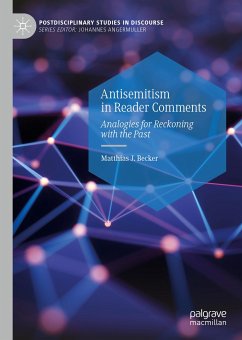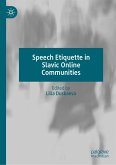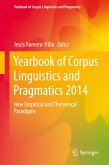This book examines the most frequent form of Jew-hatred: Israel-related antisemitism. After defining this hate ideology in its various manifestations and the role the internet plays in it, the author explores the question of how Israel-related antisemitism is communicated and understood through the language used by readers in below-the-line comments. Drawing on a corpus of over 6,000 comments from traditionally left-wing news outlets The Guardian and Die Zeit, the author examines both implicit and explicit comparisons made between modern-day Israel and both colonial Britain and Nazi Germany. His analyses are placed within the context of resurgent neo-nationalism in both countries, and it is argued that these instances of antisemitism perform a multi-faceted role in absolving guilt, re-writing history, and reinforcing in-group status. This book will be of interest not only to linguistics scholars, but also to academics in fields such as internet studies, Jewish studies, hate speech and antisemitism.
Matthias J. Becker is a Postdoctoral Researcher at the Center for Research on Antisemitism (ZfA) at the Technical University Berlin, Germany where he currently leads the interdisciplinary project "Decoding Antisemitism: An AI-driven Study on Hate Speech and Imagery Online". He is also Research Fellow at CENTRIC, Sheffield Hallam University, UK, at the Haifa Center for German and European Studies (HCGES) at the University of Haifa and the Vidal Sassoon Center at Hebrew University, Israel. In his studies, he focuses on the pragmalinguistic analysis of hate speech in mainstream society and on the internet.
Dieser Download kann aus rechtlichen Gründen nur mit Rechnungsadresse in A, B, BG, CY, CZ, D, DK, EW, E, FIN, F, GR, HR, H, IRL, I, LT, L, LR, M, NL, PL, P, R, S, SLO, SK ausgeliefert werden.









